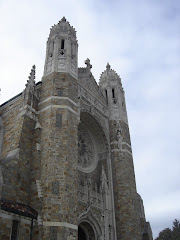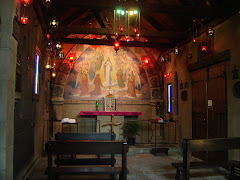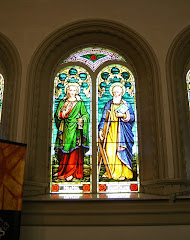 The greatest loss of the parish closings, from a design standpoint. The congregation had dwindled far too much to be sustained, however.
The greatest loss of the parish closings, from a design standpoint. The congregation had dwindled far too much to be sustained, however.
Subscribe to:
Post Comments (Atom)
A tribute to the treasure trove of ecclesiastical art and architecture in the Diocese of Toledo.
.png)








.png)




6 comments:
so in other words, wrongfully stripped of everything by diocesan elite bad-men (like new york) and demolished?
No, Alex. A parish that small simply can't survive. If it had been Protestant, it would have folded years earlier.
In fact, if the diocese was only interested in money and were operated like a business, about half the parishes would have to be closed.
that's not what i was getting at, this time. I was getting at what happened to the furnishings
That's a good question. I've been told there's a diocesan storage place for things like that.
When St. James' closed, the altar and a statue came to my parish.
I'd guess that it was split between other parishes and the storage room.
That's interesting. I wonder how I could get in to have a look.
Oh, I'm just SICK! What a beautiful place that WAS!
Actually, though, I must respectfully disagree with the comment that the church would have folded years earlier if it were Protestant. I'll use historic Salem Lutheran again as a good example. It doesn't have really any larger of a congregation than St. Anthony's did at the end. But it's still plugging along ... the fact that the building is owned by the congregation (not by the NW Ohio ELCA Synod) is no small part of it - if the congregation can keep it going however, fine. Salem does receive ALOT of outside help, from volunteers as well as donations from other churches, synod coalitions, and the regional and national offices with regard to their programs ... invaluable to their impoverished neighborhood. No one wants to lose those missions!
Post a Comment